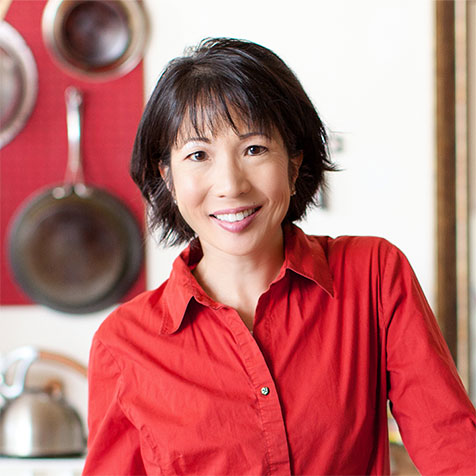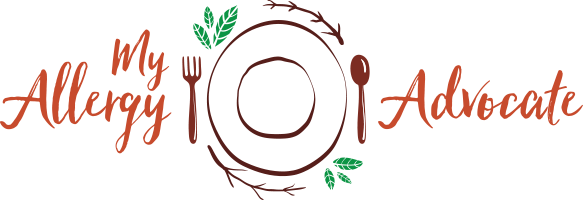
You may have noticed that I took the summer off from blogging. Instead of drumming up reviews of cooking appliances, speculating on the new food trends of the Fall and Winter season, and introducing some new foodie finds for all of the medically-necessary diets, I did something else.
I listened. That’s all. Just listened.
When people gathered to eat at nearby tables, on park benches, and at food truck festivals, I pretended to be looking at a menu or a bird or a blade of grass, but really, I was listening to what people talked about when they ate. I watched what they ordered. I honed in on how they interacted with one another while they ate. I watched from behind my dark sunglasses, gazing inquisitively at their expressions to see if they liked what they ate.
And then when I was done listening, I listened some more. Hopefully, no one caught me looking. But I really wanted to listen and learn.
I discovered — or more accurately, I rediscovered – a different kind of food intolerance. And it’s been sitting in front of my face this whole time, completely obvious and so large that it’s been blocking my ability to write about what makes food fun again for people with food allergies, intolerances, autoimmune disease, and chronic illnesses.
It’s so huge, I’m just a little bit embarrassed to tell you that I don’t know why I didn’t write more about it earlier. I mentioned it, and I moved on without giving it enough attention and scrutiny. I took a lot of time pondering how to talk about this subject in a way that would make all of us lean in a little closer, not walk off in a huff because my words would be polarizing.
What is this food intolerance? It’s not the intolerance on the plate. It’s the one that comes from both the immediate and peripheral social worlds around us — friends and family, our more immediate community of colleagues and fellow workmates in the office, the people we do activities with, and then the larger Social Media circles where we have curated so-called Influencers and Models of Health and Vitality. It’s the intolerance of all that you eat and do to stay healthy, if it happens to run up against the sensibilities, interests, and beliefs of others.
“It’s not the intolerance on the plate. It’s the one that comes both from the immediate and peripheral social worlds around us.”
This new Food Intolerance comes from people who may mean well, yet have no idea what you have to deal with. It’s delivered with assumption, judgment, and sometimes personal projection. Those who wield it don’t understand the danger of spilling their food shaming all over you; they do understand how many “likes” they’ve received, how many times their posts are read, or when their advice is complimented.
The Sound of Shaming Intolerance
So… now I am going on a short rant. Here’s just a few examples of what food shaming, the new food intolerance, sounds like. They are borrowed from the many hours of listening to people talk about food among themselves, or from times when those words were directed at me:
“You don’t need to avoid gluten. It’s a dumb diet fad, anyway.”
“Meat is so yesterday. Why aren’t you willing to eat a plant-based diet?”
“You wouldn’t be so sick all the time if you gave up meat forever.”
“All you need to avoid are white carbs. Then you’ll feel great!”
“You don’t know what you’re missing when you don’t have ice cream.”
“The reason you don’t have any energy is because you don’t eat bread or corn. These are energy foods that have been eaten for centuries.”
“How can you eat so much? Shouldn’t you eat less than your [spouse/partner/other person at the table]?’
Have you had similar examples of food shaming aimed at you? There’s nothing that kills your intent to just nourish yourself when someone abruptly inserts their experience, knowledge, or authority when you didn’t even ask for it. Personally, I find it rude, even if the person intended to be helpful.
There is only one pattern that all these statements and questions share: they are ASSUMPTIONS. The speakers assume they understand the lives and the bodies of the recipients.
These examples remind me of a time when I was probably at my lowest emotional point regarding the exhaustion of being mysteriously ill. My hair had become thinned, and my frame felt and looked frail. Everything I ate made me feel sick, but my health team did not suspect Celiac Disease. As I trudged down a busy street in Seattle, a man on a bicycle rode by and yelled at me, “For crying out loud, eat a ‘sammich!” Little did he know that a ‘sammich would have likely sent me to the hospital.
Again, the pattern involved in the majority of food shaming, whether IRL or on Social Media, are the assumptions of the observers. When combined with a snarky tone or a leading question, it gives little room for response; in fact, it often shuts down any further useful communication.
Food Shaming and Privilege
The more I listen, the more I travel, and the more people entrust their stories to me, the more I am humbled and reminded of how the ways people eat and relate to food are influenced by access and privilege. A plant-based diet is not possible in the remote Native villages of the Yukon of Alaska, where populations are struggling with the effect of climate change on their ability to hunt and fish. A Paleo diet is not tolerable to a non-meat eating Hindu who wishes to extol the virtues of ahimsa (no harm or violence). People who live in traditionally land-locked countries may not develop a taste for foods from the sea, nor wish to pay unsustainable prices for wild fish from far-away places, just as some areas of rural China won’t find your Instagram-worthy “Buddha bowls” nourishing enough to carry them through the rigors of farming, carrying water, and caring for animals.
Some of the most touted diets on the Internet are not attainable to the masses. Perhaps we can imagine eating keto in a suburban city with multiple grocery stores stocked several times a week, as long as you are making a decent income. If you can’t eat canned, packaged, or processed food but wish to eat a plant-based diet, you will be paying dearly for fresh fruits, vegetables, and supplements to make sure you avoid choline and B12 deficiency while keeping up a caloric content for your individual health.
If you are following me, I am not at all disparaging any one diet. Nutrition and what people eat must be customized to the individual to promote health, prevent disease, and deliver energy, as well as satiate so that eating feels good. To be able to fulfill those individual needs, privilege comes into play.
Not everyone has access to clean and plentiful food and water. Not everyone has the means to purchase, grow, hunt, raise, or fish for their food. In Alaska, only the resident population gains the right to hunt certain species, and they cannot sell these commercially; they only hunt for themselves. Should we judge them for eating caribou when the cost of a plate of micronutrient rich spinach trucked in from another state costs so much more, calorie for calorie?
If you catch yourself judging someone for what they eat, take a moment to think before you speak. What you see is rarely as simple as it appears.
How To Respond to the New Food Intolerance
I want to shift away from my rant, and move into what to do when you encounter someone who has food shamed you with their intolerance of what you eat.
While it feels like there is little room for response, here are a few suggestions you can try on for size that might help you keep making food fun again. These suggestions are not exhaustive, so if you come up with your own, you’re welcome to keep a record of your own:
- Be honest with your willingness to probe further. If the statement or question was from an online troll or a person known for being rude or crass, you might wish to not answer. You don’t owe anyone an explanation for how and what you eat to feed yourself.
- If you want to respond, start with the person’s assumption. It signals to the person that you actually heard what they said. For example, you might ask, “You mentioned that avoiding gluten is a dumb fad. Help me understand why you believe avoiding gluten is a dumb fad.” You have an opportunity to listen to how and where they received whatever misinformation, and they will actually identify their own assumptions for you. In other words, make them do all the work of explaining. They were the ones that brought it up. You have a better chance of seeing them own their assumption when the opportunity comes to share a differing opinion.
- You always have the right to let someone else know that while their statement or question is their own opinion, you also have you own, but will only share it if they are willing to listen. If they just want to keep believing what they want, don’t waste your breath.
- Whatever you do, don’t stop eating and nourishing your own body with what makes you well just because someone else is making assumptions about your eating patterns. For example, I have been criticized for eating animal protein according to my body’s needs. The persons who criticize will continue to do so, just as I will continue to eat rice and other gluten-free carbs, 7-8 or more servings of fruits and vegetables, and enough protein to match my body’s needs. Just because I carry two Epi pens with me at all times does not mean I ever want to use them to satisfy someone else’s beliefs about the benefits of nut butters or the sustainability of a black bean burger with onions.
- Don’t engage in a verbal argument over food while you are actually eating. Allowing someone to bully you while you are eating makes absolutely no sense. Kindly remind them that you are in the process of feeding yourself, and if they wish to ask questions and get an answer, they should wait until after you have finished eating. Why? I find these kinds of conflicts to be about a power struggle, not a connection between two equal human beings. When you give someone else the right to badger you about something as personal as what you put in your body, it’s like saying that you forfeit your adult responsibility to that other person. Hello, hell no!
- If there is going to be swearing, direct them at things, not people. When people get passionate and emotional, that’s fine. You can even address that by naming it! But when discussions turn into ad hominem attacks — and especially when it involves name calling and character attacks — it’s time to disengage.
Well, I couldn’t have planned it, nor would I have wanted to, but this weekend, I discovered that my food intolerance to beets is as strong as ever. No more beets for me. The next time I am out and about, ordering a salad that has no tomatoes, beets, peppers, corn, onions, beans, dairy, or chickpeas — essentially, a bowl of lettuces and carrot! — and I get that look from the server, those dining at the table next to me, even the chef — I tell you, it’s time to be chin up. I’m not letting the new food intolerance and shaming take away from what I can eat.
While I don’t expect some people will stop being mean, I do know that my Summer of Listening has helped me to be more understanding of people’s eating habits, local and global.




